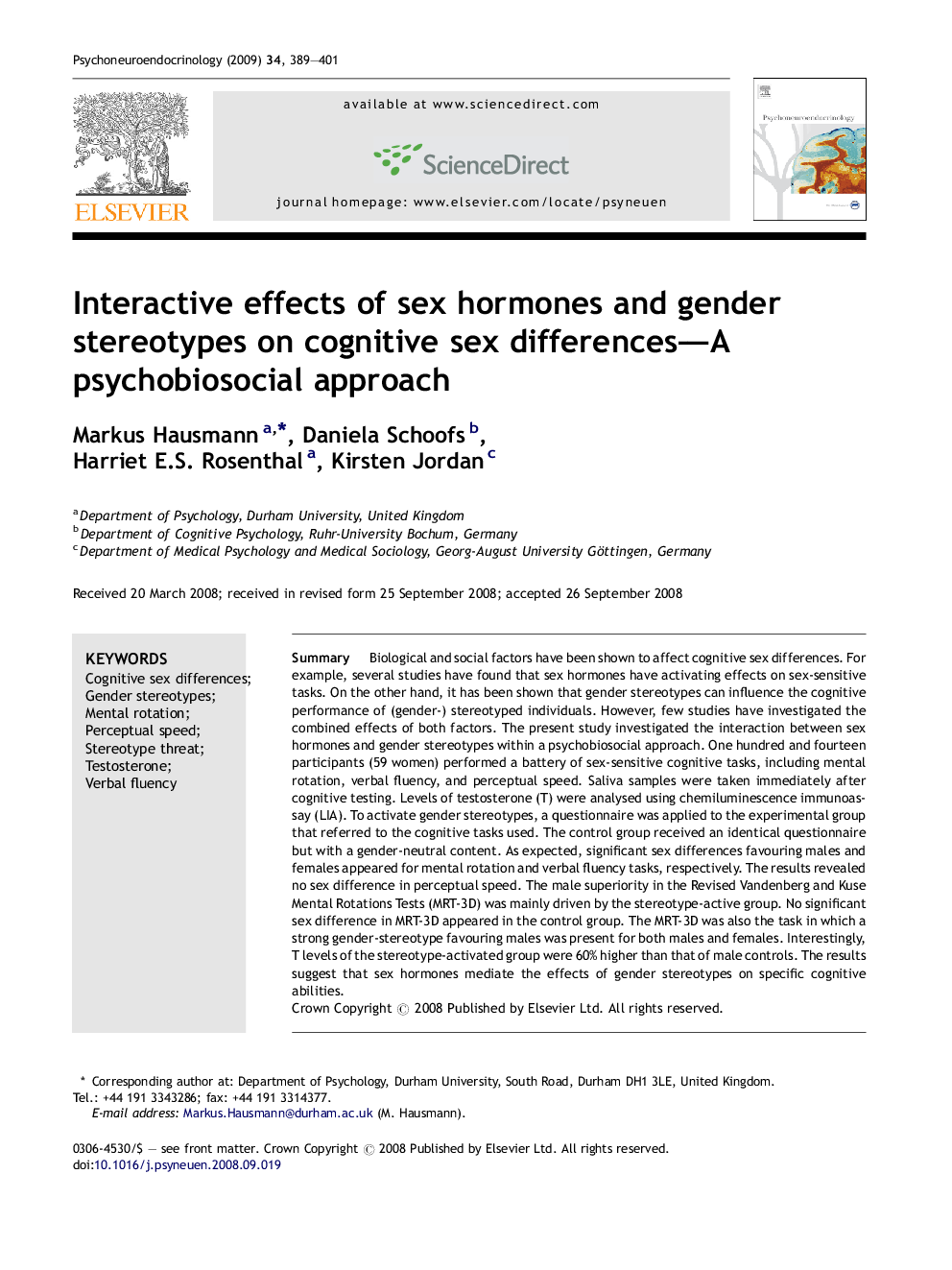| کد مقاله | کد نشریه | سال انتشار | مقاله انگلیسی | نسخه تمام متن |
|---|---|---|---|---|
| 336262 | 547099 | 2009 | 13 صفحه PDF | دانلود رایگان |

SummaryBiological and social factors have been shown to affect cognitive sex differences. For example, several studies have found that sex hormones have activating effects on sex-sensitive tasks. On the other hand, it has been shown that gender stereotypes can influence the cognitive performance of (gender-) stereotyped individuals. However, few studies have investigated the combined effects of both factors. The present study investigated the interaction between sex hormones and gender stereotypes within a psychobiosocial approach. One hundred and fourteen participants (59 women) performed a battery of sex-sensitive cognitive tasks, including mental rotation, verbal fluency, and perceptual speed. Saliva samples were taken immediately after cognitive testing. Levels of testosterone (T) were analysed using chemiluminescence immunoassay (LIA). To activate gender stereotypes, a questionnaire was applied to the experimental group that referred to the cognitive tasks used. The control group received an identical questionnaire but with a gender-neutral content. As expected, significant sex differences favouring males and females appeared for mental rotation and verbal fluency tasks, respectively. The results revealed no sex difference in perceptual speed. The male superiority in the Revised Vandenberg and Kuse Mental Rotations Tests (MRT-3D) was mainly driven by the stereotype-active group. No significant sex difference in MRT-3D appeared in the control group. The MRT-3D was also the task in which a strong gender-stereotype favouring males was present for both males and females. Interestingly, T levels of the stereotype-activated group were 60% higher than that of male controls. The results suggest that sex hormones mediate the effects of gender stereotypes on specific cognitive abilities.
Journal: Psychoneuroendocrinology - Volume 34, Issue 3, April 2009, Pages 389–401